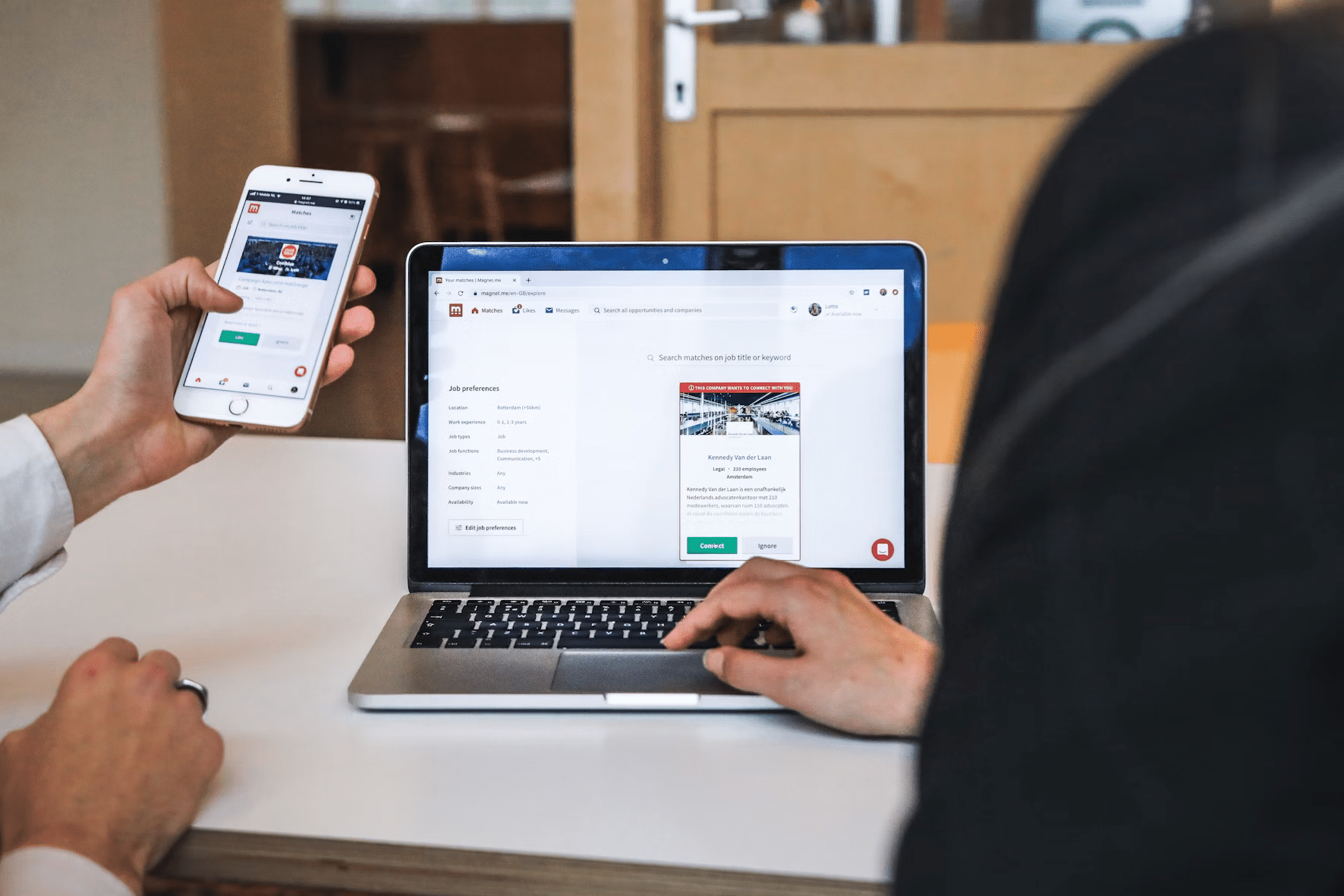In 2025, LinkedIn remains the top global platform for job seekers and recruiters alike. It’s not just a digital resume—LinkedIn is a dynamic tool for building professional relationships, showcasing your skills, and attracting recruiters. As such, it is a very popular place for people looking to be noticed by recruiters. How can you optimise your profile and stand out among thousands of competitors?
Why LinkedIn is the most essential tool for job seekers
It hosts millions of professionals, making it the largest professional networking site. It’s not just about job postings anymore; LinkedIn helps you create a strong personal brand, grow your network, and gain insights into industry trends. Job searching has evolved, and LinkedIn is at the heart of this evolution.
How recruiters find candidates on LinkedIn
Recruiters use LinkedIn’s search features to locate candidates that match specific criteria. They look for keywords in your headline, summary, and job titles to identify relevant professionals. Additionally, LinkedIn’s algorithm promotes profiles that show a high level of activity—engaging in posts, writing articles, and participating in groups can significantly boost your visibility.
Recruiters look for LinkedIn’s “Open to Work” feature, which allows you to signal that you’re actively job-seeking. This simple but effective tool increases your chances of appearing in searches for candidates by recruiters who prioritize people actively looking for new roles.

Why an optimised LinkedIn profile increases your chances of getting hired
When your profile is filled with industry-specific keywords, up-to-date experience, and engaging content, you increase the likelihood that your profile will stand out in recruiter searches. Furthermore, LinkedIn’s algorithm prioritizes profiles that are complete and active, so an optimized profile will naturally rank higher, giving you an edge over competitors.
Step-by-step guide to optimising your LinkedIn profile for job hunting: Optimize LinkedIn profile for job search 2025
How to optimize LinkedIn profile for job search 2025? As always, I’ve got your back. Here’s a detailed guide to making sure your LinkedIn profile is fully optimized to catch the attention of recruiters:
- Craft a strong headline: Your headline is the first thing recruiters see, so it should clearly state what you do and what you’re looking for.
- Use a professional photo: Your photo plays a critical role in forming a first impression. Ensure it’s high-quality, professional, and appropriate for your industry.
- Write a compelling summary: This is your elevator pitch. Highlight your key accomplishments, skills, and what makes you stand out.
- Detail your experience: When filling in your work history, don’t just list your job titles. Provide a brief description of each role, focusing on achievements, quantifiable results, and the impact you had in previous positions.
- Showcase skills: List relevant skills and make sure they align with the type of role you’re looking for.
- Obtain recommendations: A few strong recommendations can help build credibility and showcase your professional relationships.
- Use the “Open to Work” feature: Enable this feature to let recruiters know you’re available for new opportunities.
- Engage with content: This shows recruiters that you’re knowledgeable and passionate about your industry, making your profile more appealing.
How to increase your LinkedIn profile’s visibility to recruiters
If you want your profile to be seen by more recruiters, you need to increase its visibility. Here’s how you can do that:
- Use keywords strategically: Identify the most important keywords for your industry and position and incorporate them into your headline, summary, job descriptions, and skills.
- Be active: LinkedIn rewards active users. By liking, commenting, and sharing posts, you increase your profile’s visibility.
- Build and expand your network: A larger network means more connections to potential opportunities.
- Leverage LinkedIn’s job search tools: You can set up job alerts based on your preferences, for example.
- Post regular updates: Recruiters are more likely to notice a profile that shows continuous engagement and thought leadership.

